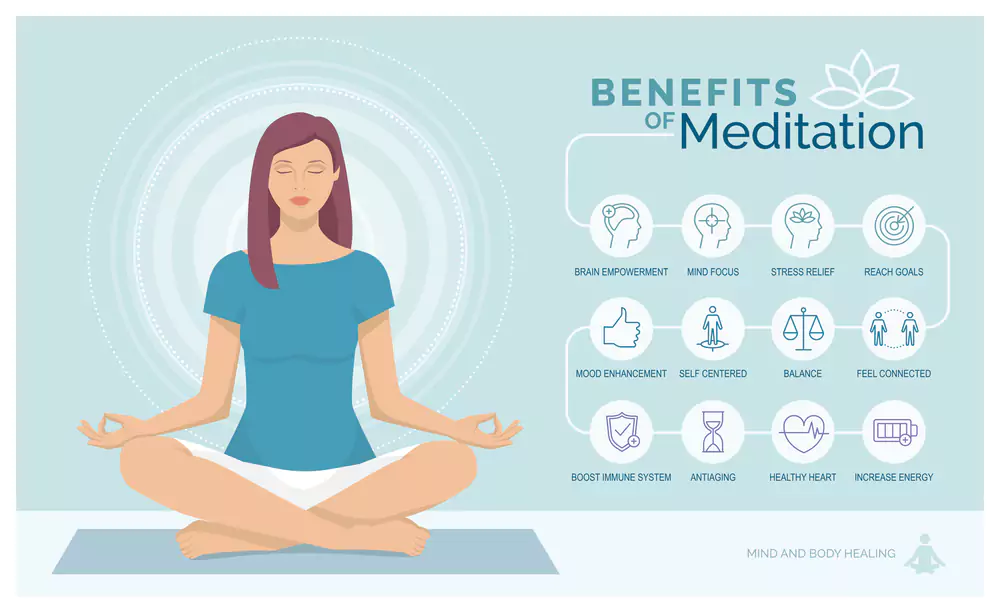
Achieving overall wellness is about caring for your mental and physical health. Wellness goes beyond physical fitness and looks holistically at bringing harmony to all aspects of one’s life. But how to achieve overall wellness mind and body?
In today’s busy world, finding the time and motivation to focus on wellness can be challenging. However, making small, consistent changes to your lifestyle and habits can significantly improve your quality of life.
How to achieve overall wellness mind and body
Here are some tips on how to achieve overall wellness of mind and body:
Tips for physical wellness
- Exercise regularly: Engage in regular physical activity that you enjoy. Find activities that get your body moving, such as walking, jogging, swimming, cycling, dancing, or participating in sports. Aim for at least 150 minutes of moderate-intensity exercise or 75 minutes of vigorous exercise per week, as recommended by health guidelines.
- Eat a balanced diet: Focus on a nutritious and well-balanced diet that includes a variety of fruits, vegetables, whole grains, lean proteins, and healthy fats. Stay hydrated by drinking an adequate amount of water. Limit processed foods, sugary snacks, and excessive intake of caffeine and alcohol.
- Get enough sleep: Prioritize good sleep hygiene and aim for 7-9 hours of quality sleep each night. Establish a regular sleep schedule, create a relaxing bedtime routine, and create a sleep-friendly environment that is cool, dark, and quiet. Sufficient sleep supports both physical and mental well-being.
- Manage stress: Find healthy ways to manage and cope with stress. This can include practicing mindfulness and relaxation techniques, engaging in hobbies, spending time in nature, seeking social support, and learning stress management techniques such as time management and setting realistic goals.
Tips for mental wellness

- Practice mindfulness: Cultivate mindfulness by being present in the moment and non-judgmentally aware of your thoughts, feelings, and sensations. Regularly check in with yourself and practice self-reflection to gain insight into your emotions, behaviors, and values.
- Challenge yourself: Learn a new skill, take up a hobby, or set goals to maintain mental stimulation. Don’t fall into a rut.
- Foster relationships: Spend time nurturing relationships and building a support system. Isolating can negatively impact mental health.
- Seek help when needed: Seek support from a counselor or therapist if you are dealing with depression, anxiety, or other mental health conditions. There is no shame in getting help.
Tips for emotional health
Emotional wellness is a key part of overall wellness, as it relates to how you handle and express your feelings healthily. Here are some tips on how to enhance emotional wellness:
- Be self-aware: Knowing your feelings and how they affect your thoughts and actions is a crucial first step in enhancing emotional wellness. Take time to reflect on your feelings and recognize patterns or triggers that may be causing them.
- Learn emotional regulation skills: Learning to control your feelings can help you cope with stress and improve relationships with others. Techniques such as deep breathing, mindfulness, and cognitive-behavioral therapy can help you control your feelings.
- Build supportive relationships: Having supportive relationships with friends and family can help enhance emotional wellness. Surround yourself with people who make you feel valued and supported. Foster meaningful connections and surround yourself with positive and supportive relationships. Spend time with loved ones, friends, and participate in social activities that bring you joy and a sense of belonging. Healthy relationships contribute to emotional well-being.
- Find healthy coping strategies: Developing healthy coping strategies can help you deal with stress and difficult feelings. Some examples of healthy coping strategies include exercise, journaling, and meditation.
- Practice gratitude and positive thinking: Cultivate a practice of gratitude by regularly expressing appreciation for the positive aspects of your life. This can be done through journaling, sharing gratitude with others, or simply taking a moment each day to reflect on what you are grateful for. Gratitude promotes a positive mindset and enhances well-being.
- Seek professional help if needed: If you are struggling with mental health concerns or facing challenges in achieving overall wellness, don’t hesitate to seek professional support. Consult with healthcare professionals, therapists, or counselors who can provide guidance, support, and personalized strategies.

Bringing it all together
- Develop consistent habits: Motivation fades, so focus on building routines. Make time every day for wellness.
- Listen to your body: Note how different foods, activities, and behaviors impact your feelings. Respond appropriately.
- Be patient: It takes time to build healthy habits. Celebrate small wins on your wellness journey. Overnight success is rare.
- Prioritize Self-Care: Make self-care a priority in your daily routine. Set aside time for activities that promote relaxation, stress reduction, and self-reflection. This can include practices like meditation, yoga, deep breathing exercises, taking baths, reading, or engaging in hobbies that bring you joy.
Also read about: Best 5 Tips On How To Sit Comfortably With A Fractured Pelvis
FAQs
Conclusion
The path to overall wellness requires making your health and self-care priorities. You can achieve a balance that enhances your quality of life by taking small steps daily to nourish your mind, body, and spirit. Be consistent, listen to your needs, and be patient with yourself along the way.
In conclusion, achieving overall wellness of the mind and body requires a holistic and intentional approach. It involves nurturing various aspects of your life, including physical, mental, and emotional well-being.
By prioritizing self-care, maintaining a balanced diet, engaging in regular physical activity, getting adequate sleep, managing stress, cultivating positive relationships, practicing mindfulness and self-awareness, engaging in mental stimulation, practicing gratitude, and seeking professional support when needed, you can foster a state of well-being that encompasses both your mind and body.
Remember, wellness is a lifelong journey that requires patience, self-compassion, and an ongoing commitment to nurturing your overall health and happiness.

